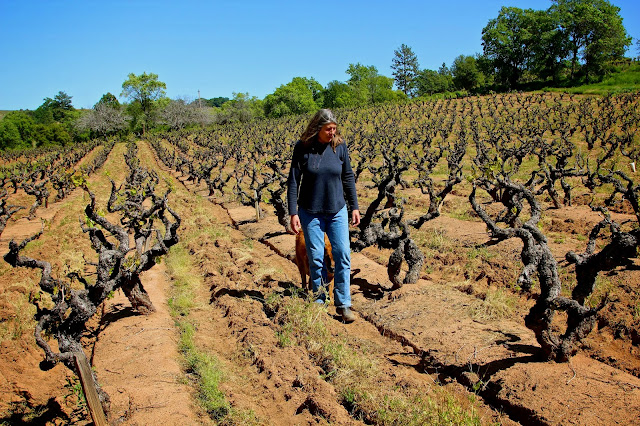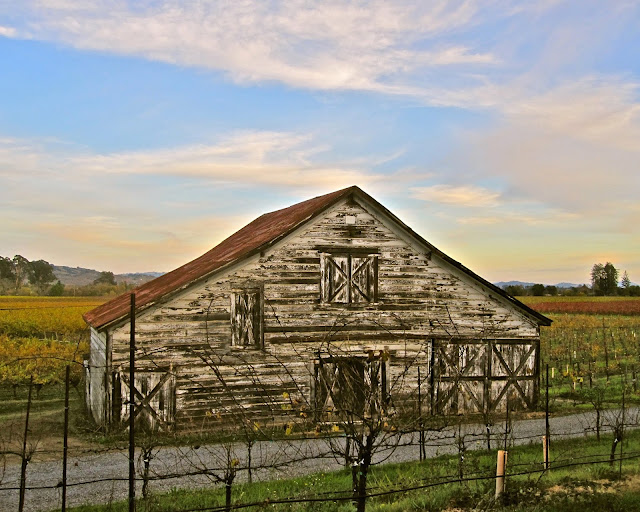Poems of Wine, the Grand Illusion
Opening a bottle is an act
of optimism. We’re confident it will
improve the moment, the conversation,
the relationships. Each time we pull a cork,
it’s as if we’re saying, Here, I think this
will help make things a little better.
- Joseph Mills, Wine’s Beautiful Illusions
We all feel pathos and passion, we crave levity and we despair of invariable disappointments; and in the compelling rhythms of songs and poems, we find those emotions distilled to a pleasurable essence.
Why not for wine? There’s a passion we can all relate to. I’ve often wished there were more to wine reading than the current block of excruciatingly anal (especially when numerically fixated), largely unoriginal chatter that constitutes modern day wine journalism. Oh, what a poet could do to cut through the claptrap.
Then, like a rare yet palpable astronomical alignment, I am sent this book composed by a well published literary critic from North Carolina: Angels, Thieves and Winemakers by Joseph Mills (©2008, Press 53)
Is it wine that changes in the bottle or a glass, or is it you? Writes Mills, in Some Hypotheses on Why a Second Glass May Taste Better:
Perhaps the eyes see the refill
and signal to the body
At ease:
you’re here for a while so
you might as well
loosen the tie
and settle in,
or perhaps the wine itself relaxes
slips out of its cork corset,
begins to breathe
and make itself more sociable,
but it’s probably because
you are wiser
than a glass ago.
There is no mystery now
about what the bottle holds.
You no longer have
expectations
or illusions
but you still have
desire.
In another post, Wine the Grand Illusion, I hypothesized that the phenomenon of wine improving in taste after time spent in a decanter or glass has less to do with wines actually changing than the mind and senses becoming more attuned to sensations. This, of course, flies in the face with “common knowledge” among wine connoisseurs – the belief that finer wines do indeed benefit from “breathing” – and it hasn’t been one of my most popular articles. I’m not only sticking to my guns – it’s the mind, not the wine, that finds clarity in a glass – but I’m now finding solace in the words of Joseph Mills, for whom intuition is much stronger than myth.
In fact, leave it to a poet to instinctively doubt the “Book of Bob,” as he refers to the critical reviews of one Robert Parker; the be-all and end-all of many a wine connoisseur. Writes Mills:
It’s difficult not to wish
at least one apostle
would have had
a better palate
and a little more
professional distance.
Then, at the wedding
where Jesus turned
water into wine,
while others proclaimed
a miracle, this critic
would have stayed calm,
offering a more rational
report, such as “Golden,
overtones of figs
and honey, but lacking
body, and thin overall.
An 87”
The disciples did try.
Look at DaVinci’s Last Supper.
It’s obvious what happening
around that table;
they’re arguing about flavor profiles,
score tabulations,
ratings for the release
but it’s just for show
since almost all of them
ended up giving similar raves…
I love the irony of the fact that although we do not read from a “Book of Bob” in church, in the world as we know it we might as well be, for all the incessant parroting of the same ol’ type of critical reviews hoisted upon us by those who sell us our wine. For me, personally? It’s hard enough coming to Jesus, but there’s no way I’m going to let a handful of critics decide what I should be drinking and appreciating.
My favorite wine writer is Kermit Lynch, who concludes in his Adventures on the Wine Route that there
… is much contained in a glass of good wine. It is a gift of nature that tastes of man's foibles, his sense of the beautiful, his idealism and virtuosity.
If you can appreciate Lynch’s prose – and his own famous pathos concerning the mucked-up state of contemporary wine appreciation – you might like Mills’ poetry even better. In his Filters:
As he explains the machine,
the winemaker notes,
You can filter a wine
so much you can take
the color right out,
and I wonder if that says something
about American tastes,
our obsessions with cleanliness,
our longing for purity,
or if it could be a metaphor
about the straining meshes
of schools and careers,
manners and unspoken codes
of behavior, the borders
we pass into other countries,
other regions, other families
or maybe it’s a warning
about the temptation
to exert too much
control, to go so far
in the quest of quality
you cut to the bone
throw the baby out
with the bathwater,
lose the thread…
and as I consider
and reject the clichés
piling up, I realize
I’m alone.
Everyone has flowed on
to the tasting room,
and I wonder
if the conversations
have become more
appealing, crisper,
if the group is a little
brighter and cleaner,
now that I’ve been left behind.
But in the end, as far apart as their perspectives may be, Parker and Lynch lovers alike often find the same type of singularly personal, startling familiarities that vinous aromas often pull from the memory bank, for good, bad, beautiful or profane. In Mills’ Twenty Years Later I Make a Realization About Her Shampoo:
What do you smell,
the winemaker asks,
and I hesitate to answer
because it’s an old girlfriend
and weekends in her studio apartment,
milk carton bookshelves
and cracked walls and ceilings
whose stains we pretended formed maps
of countries like Mythica and Fornucopia.
He waits politely
but you can’t say
you smell a lover,
broken plaster,
old jokes,
a life you used to have.
Finally he suggests,
Grapefruit?
and I realize, yes,
that’s it,
the nape of her neck,
her ears, her hair.
Grapefruit.
There is a total of fifty four poems in Mills’ Angels, Thieves and Winemakers, and you can procure your own copy either through Press 53 or Amazon. Before turning to the first page, I strongly suggest the uncorking of a Domaine Tempier Bandol Cuvée Spéciale – a Kermit Lynch Wine Imports bottling that, like Mills’ verse, cuts right to the quick without passing go, and through which you can taste the sweat of the earth and the blood of the original winemaker (depending upon your persuasion – God, Jesus, Mother Nature, or Otherwise)… unfined, unfiltered, unnothinged!








Comments